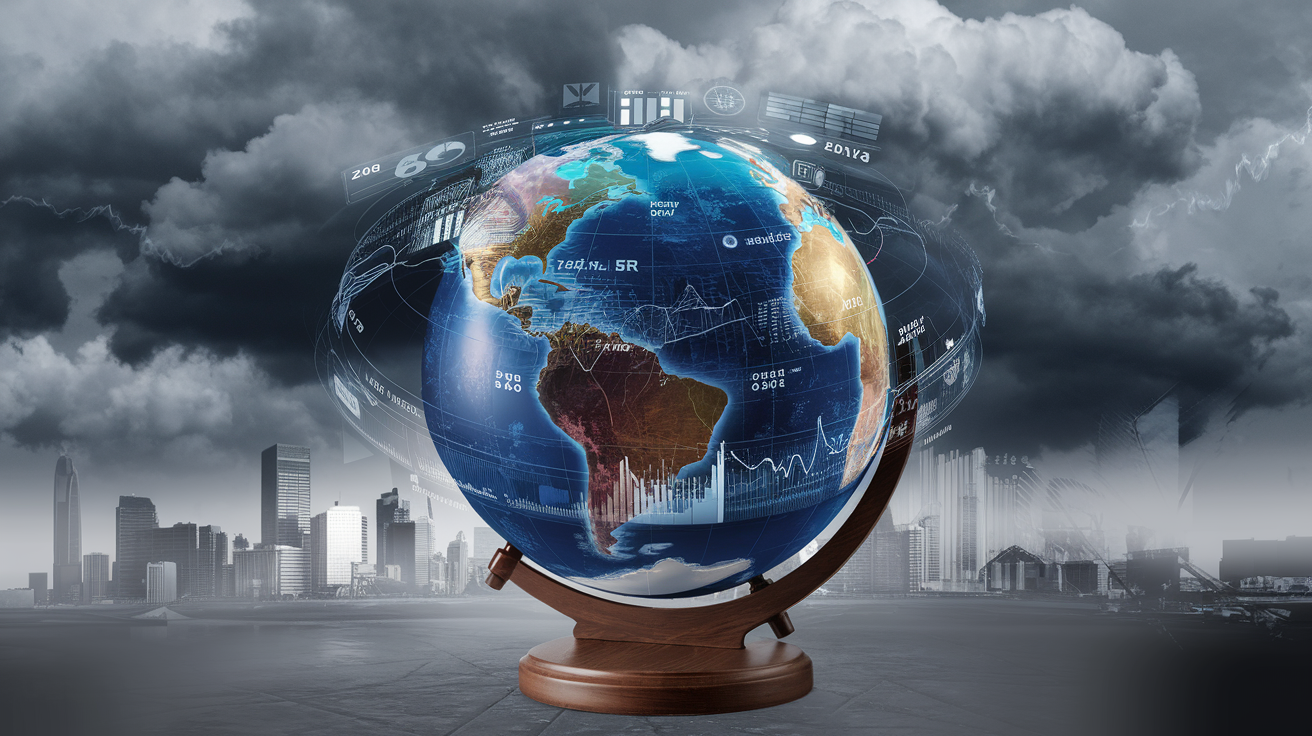So, you’ve probably heard the buzz about the global economy slowing down, right? But what does that even mean, especially when organisations like the OECD are throwing numbers around like a kid with confetti? Let’s break it down, plain and simple.
What’s the Deal with the OECD?
First things first, who or what is the OECD? That’s the Organisation for Economic Co-operation and Development. Think of it like a big club of countries working together to boost economic progress and trade. Recently, they’ve lowered their global growth forecast, and that got everyone a bit jittery. You might be wondering, “Why should I care about these forecasts?” Well, the impact trickles down from nations to businesses to our wallets.
Why Lower the Global Growth Forecast?
Let’s get it straight. The OECD isn’t just guessing numbers. Their forecast considers loads of factors, and right now, there’s a big elephant in the room: trade tensions. Ever heard the phrase "trade war"? Yeah, it’s as combative as it sounds, and recently, it’s been creating roadblocks between big economies like the US and China.
Here’s what you need to know:
- Trade tensions impact global supply chains: When big players don’t get along, goods take longer to move, costing more and slowing production.
- Volatility in markets: Investors hate uncertainty. When they’re unsure, they hold back, affecting jobs and profits.
- Interest rates and inflation: Unhappy trade relations can change what you pay for loans or even your weekly groceries.
Who’s Sweating Over These Forecasts?
Imagine sitting at your favourite café, sipping coffee, and hearing everyone chatter about money woes. It might seem distant, but people are worried about several things:
1. The Regular Folks
That’s you, me, your neighbour. We care because:
- Jobs: With global slowdown, businesses might hesitate to hire or even start laying off workers.
- Prices: Anything imported could become pricier.
- Savings and Investments: Market fluctuations can mean a rollercoaster ride for your savings.
2. Businesses Big and Small
From mega-corporations to your local butcher, everyone feels it:
- Export issues: Companies exporting goods could face tariffs or restrictions.
- Higher costs: Raw materials might cost more.
- Uncertain future: Expansion plans could stall, affecting innovation.
3. Governments
Yes, those big decision-makers feel the pinch too:
- Budget planning: Lower growth means less tax revenue.
- Public services: Strained budgets might impact services like healthcare and education.
Making Sense of It: How Did We Get Here?
It’s not just about blaming trade tensions. The world economy isn’t as black and white. Let’s sprinkle some context in there:
Tech Disruptions
Ever seen those movies where robots take over? Well, in reality, automation and technology aren’t far off. Sure, they improve efficiency, but they also mean fewer jobs in some sectors.
Political Instability
From Brexit to political spats in the US, these shake up investor confidence. Nobody wants to put their money into a hurricane zone, metaphorically speaking.
Health Crises
You’ve lived through a pandemic. It shut down economies globally, causing ripple effects still visible today.
What Can You Do?
Feeling a bit lost? Here’s where you take control. Think of it as building a shelter before the storm hits.
1. Stay Informed
Keep your ear to the ground. Knowledge is power, and understanding these shifts helps you plan better.
2. Diversify Investments
No one likes to put all their eggs in one basket. Spread your risks across various assets.
3. Budget Like a Pro
Embrace budgeting apps and tips. Having a financial cushion helps, especially if prices rise or jobs become less certain.
4. Seek Opportunities
It’s not all doom and gloom. Downturns can also mean new business opportunities. Think creatively, and don’t be afraid to pivot.
Isn’t the World Economy Just a Big Question Mark?
Sure, it can feel like that sometimes. But think of it as a giant game of Jenga. Every time a block (like trade or technology) shifts, the balance changes. Some pieces cause the whole tower to wobble more than others.
The Silver Lining
Remember, economies are cyclical. They ebb and flow, and what goes down often comes back up. It’s about riding the wave, making smart decisions, and most importantly, avoiding panic.
What’s Next for the OECD?
Ah, the organisation isn’t sitting idle. They’re not just the bearer of potentially bad news. They work on policy advice and finding solutions. They’re like the economy’s scout team, identifying trouble spots and recommending ways to patch things up. They foster dialogue among countries, encourage reforms, and offer platforms for collaboration.
Wrapping It Up: Stay Sharp
In a world where every headline seems like a crisis, staying calm and informed can be your superpower. The OECD lowering its global growth forecast amid trade tensions might sound like a snooze-worthy headline at first, but for those who dig a little deeper, there’s a lot at play.
It’s less about predicting doomsday and more about getting a heads-up. With trade tensions acting like a stubborn kid on the playground, the global economy is going through a bit of a tug-of-war. But worry not, with a pinch of awareness and a dash of smart planning, you’ll navigate through these times just fine. And remember, in every forecast, there’s more than just clouds—often, there’s a hint of sunshine too.







